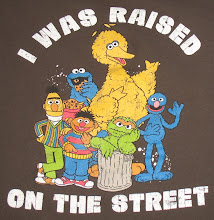..
.
I'm really concerned, and I fear the on-screen insanity--which probably manifested first in on-stage insanity--is now infecting characters in fiction. Here are some symptoms to tell if you favorite character is insane:
Talking at length to inanimate objects about things like the character's personal history, how they feel about a boy, or their evil plot to destroy the world. Not only is this crazy, but it's dumb and a very common way for people to listen in at doorways (which makes them creepy stalkers, not crazy, but that's a different post all together).
Talking to self about things that should be passive feelings or thoughts. You know, like if a character IS happy, but instead of feeling happy they're telling themselves "I'm happy right now, boy am I happy, really really happy... look at me: HAPPY!" The truth is they should be demonstrating these feelings. So, if your character is doing this, they probably aren't happy, but schizophrenic.
Telling people who also experience an event, about the event that was experienced. For example:
"You remember, Bill. Last week when the power[bar] plant blew up and thankfully all the firemen had plenty to eat to give them the energy to pull survivors out through the night but Jane's husband suffered some pretty serious burns on his hands and that's why he's in bandages and she was going to leave him but she's very passive so she's sticking around to take care of him and that's why she seemed so distant in the interactions that are currently taking place with her."
"Yeeaaaaah, Bob. I do remember. I was there, if you recall, and this is my life so I don't often go forgetting things like that... Are you okay, Bob? You've been frantically telling everyone things they already know... I'm worried."
Also, if two characters are speaking like this, your scene is a crock of shit.
Or, what about characters that have very vivid, awkwardly relevant dreams? I mean, sure, fine line here as maybe they just dream a lot, but sometimes it just seems too convenient, as if they're either lucky-insane or have a writer feeding their dreams from off screen, which makes the character insane, because people don't have dream-feeds without being insane (though I'm sure there's an app for that).
Your characters are also insane if they have music playing anytime they feel certain emotions. This. Isn't. Natural. At some point you'd think a character would start to wonder what the hell is going on! Why is that music playing?! I'm trying to mourn, here!
I think you get the idea. These are things we see all the time in TV and movies, and to some degree they're necessary since we can't always get into the head of a character on screen, the way we can in fiction.
I say 'to some degree' these tropes are necessary, because I don't remember this 'crock of shit' worthy writing existing in The Wire, for instance. Hell, The Wire didn't even have the sappy TV music to cue us into the mood or emotions of a scene or character. And, The Wire also happened to feel very effing real. The characters WERE crazy at times, but not silly-insane like in bad TV, but actually really just crazy.
So why do it on screen? Well, it's just easier. And sometimes these things can, in moderation, be used with success. The key, I'd say, is that they become supplemental to the 'real' things happening on screen. I mean, how many times have you heard the sad music, and cognitively thought to yourself (or possibly turned to your favorite inanimate object and started a conversation) "ah, I get it, the character is sad," and noticed it didn't actually SEEM like the character was sad, and you didn't actually feel sad? Yeah. That's bad, lazy writing. Notice I said writing... people DO actually write for TV and movies, you know, and writing doesn't HAVE to be lazy it's just easier.
Here's the rub: if you throw these on-screen tropes into your fiction, you're almost always embarrassing yourself. Why? Because if you're doing anything at all right, you should be at least somewhat IN the character's head. You don't need the character telling a blanket things they're feeling, thinking or information about their life, because like the reader, the character should simply be experiencing said life and interiorization. 99% of the time in fiction (all fiction, not even just the best fiction) the reader will understand the important things if you're at all clever in your prose and won't need them all explained awkwardly.
And I refer to characters as having lives, because that's how real fiction needs to be treated: with respect to your characters as if they were real, and not some silly caricature of bad on-screen nonsense. Leave the shitty TV on TV, don't bring it into your fiction... until you fail at writing compelling fiction and go for the big bucks writing shitty TV.
Your characters don't need to seem insane. All you're doing is underestimating the reader's ability to 'get' things, and your ability to deliver the truth in a clever way. Cure your characters insanity by first helping yourself. In the immortal words of Ice Cube: chiggity check yo'self before you wriggity wreck the believability of your characters.

Hi,
ReplyDeleteThis is a great post more aspiring writers should read. I'm sure some just feel downright clever by writing their char divulging their deepest emotions to a cereal box. It's not.
The closest exception to this would be if Character A--and the reader--really wouldn't know something Character B does. Even then, the conversation should come up smoothly and remain true to the participants. Character B's dialogue should not seem as if he's taken on the voice of a radio personality.
Take care,
//Rainy